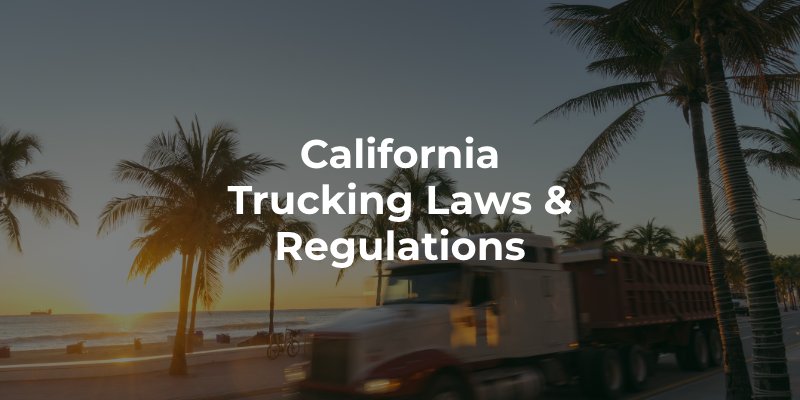Our attorneys have been assisting the Orange County and Southern California communities for over 40 years.
Operating a commercial truck in California can be tough, particularly when navigating both state and federal regulations. However, there are some basic trucking laws in California that you absolutely should know about. Our experienced Orange County trucking accident lawyers explain.

It is important to keep in mind that most California laws related to commercial trucking are also crafted based on federal laws. The federal government has a large role in regulating these vehicles because they perform Interstate commerce. However, the state of California certainly does have additional regulations related to the trucking industry.
Any person wishing to operate a commercial truck on California roadways must obtain a commercial driver’s license (CDL).
Drivers must first obtain a commercial learner’s permit, a permit that only authorizes you to practice on public roads with a qualified CDL holder sitting next to you. Drivers wishing to apply for and obtain a CDL must pass a vision test, medical exam, and a written knowledge test at the DMV. Individuals with prior CDL training from another state or with prior military experience may be able to waive some of these tests.
In addition to the federal requirements, when applying for an original CDL (Class A or B) in California, the applicant must complete a minimum of 15 hours of behind-the-wheel training and submit a California Commercial Driver Behind The Wheel Training Certification (DL 1236) to the DMV as proof of completion prior to the issuance of their CDL.
The Federal Motor Carrier Safety Administration (FMCSA) requires that all commercial truck drivers keep a log of their activities. This should include every stop that they take, how often they take breast breaks, as well as any inspection results along the route. These logs are typically off now electronic logging devices instead of handwritten journals.
Every commercial truck must be regularly inspected and maintained. Drivers must inspect the vehicle before each trip, and trucking carriers are responsible for regular inspection and maintenance. They must also keep logs of the maintenance completed.
The FMCSA closely regulates how many hours truck drivers operate each day and each week. These hours of service requirements are designed to ensure the safe operation of large commercial trucks. Operating these vehicles while fatigued is incredibly dangerous. The state of California also regulates drivers who do not take part in Interstate travel, but rather those who work intrastate (within California only).
Every commercial truck in California that travels from state to state is required to register with the US Department of Transportation and obtain a vehicle identification number. This number must be visibly displayed on both sides of the truck.
There are various laws that dictate how much a truck can weigh and how large it can be, depending on the configuration of the vehicle and how the axles are laid out. These vehicles can weigh as much as 80,000 pounds when fully loaded and reach lengths of up to 65 feet. These limits can be extended with special permission from state or federal regulatory agencies.
If you or somebody you love has been harmed due to the negligent actions of a truck driver or trucking company, or if you are unsure about whether or not you may have a personal injury claim, reach out to an attorney as soon as possible.
A skilled truck accident lawyer in Orange County can help guide you through this process and help determine the best steps moving forward during your free consultation.